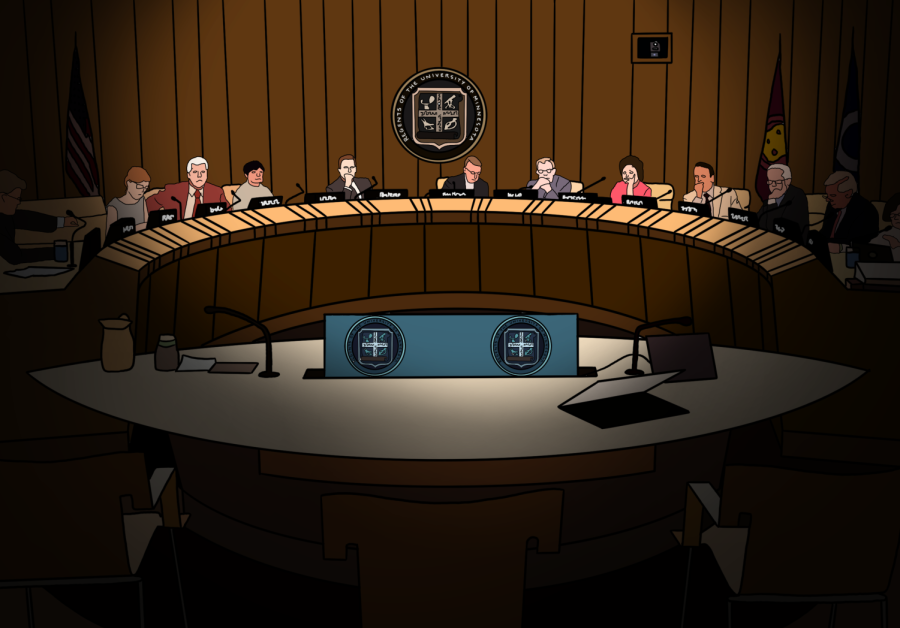Minnesota’s DFL leadership has been widely lauded for their victories during the 2023 legislative session.
In one fell swoop, they’ve managed to achieve a historic slew of progressive bills that the Senate viewed as far-fetched ideas for decades. A slim majority operated in lock-step to push through the ambitious docket.
It’s been a long time since the words “productive” and “government” were used in the same sentence. Whether you see this recent session as a win for Minnesotans, or as GOP leaders would call it bonkers, the subtext of these events reminds us of what is possible when representatives actually accomplish what they set out to do. Turns out, it’s a pretty popular approach.
It got me thinking: What can the University of Minnesota’s Board of Regents learn from this shining example of community-responsive policymaking as they prepare to select the next president?
Minnesota’s Legislature showed us that the only way to turn things around is to, well, turn them around. Following a sluggish first term, DFLers took the trust of their constituents seriously.
“We were elected to move forward and move Minnesota forward,” Senate Majority Leader Kari Dziedzic said in an interview with CBS News. “Voters told us they don’t want gridlock. They gave us the trifecta.” A trifecta is when one political party holds the governorship, a senate majority and a majority in the state house.
But being granted that power is not what made this session so remarkable. The follow-through on promises to voters is what truly put Minnesota on the map.
Two-term Minnesota Gov. Tim Walz kicked off the year with an impassioned speech that cited a refreshing sense of optimism for the future of the state. During his first term, which was characterized by unprecedented challenges, like the COVID-19 pandemic and the murder of George Floyd, Walz put his leadership skills through the wringer.
The constraints of these circumstances were echoed in his narrow victory. While the temperament of the statehouse is far from harmonious, Walz’s successes prove the significance of advocating for an agenda with clarity and precision.
Many of the obstacles that were presented during Walz’s first term were identical to those faced by former University President Joan Gabel.
Her administration, born from a wellspring of optimism as the University’s first female president, set out to strengthen the research arms of the institution while creating a more inclusive environment for incoming students around the world.
In some ways, those goals were accomplished. Gabel’s most ambitious initiative, MPact 2025, has achieved more than $1 billion in research expenditures in addition to securing record-setting graduation rates and a spot as one of the nation’s top 25 public universities.
And yet, Gabel’s abrupt resignation from the University in early April (and the scandals that preceded it) has left a complicated cloud of controversy hanging over the Office of the President, leaving many to question the role that a president should play in campus culture. For all of Gabel’s successes, she failed to connect with the student body, as evidenced by a non-scientific questionnaire conducted by the Minnesota Daily in the wake of her departure.
Gabel is merely a symptom of the larger culture of dysfunction brewing within higher education.
The corporatization of these institutions has disincentivized leadership from prioritizing student experience over the bottom line. Gabel’s legacy proves leadership tied solely to a salary is hollow. Somewhere along the way, we lost sight of just how important invested administrators truly are — a quality money can’t buy.
Universities can and should be understood through the same analytical framework as political institutions. Their powers converge at the intersection of the same social, cultural and economic forces that challenge our current political climate. We ought to start treating these positions of authority as though they wield such influence.
“I think that there are a lot of great opportunities for the university to listen more to their students … as the regents search for the next president, finding someone that the students can trust is important,” said Maren Viker, a recent graduate.
Keyword: opportunity. It is imperative that the regents see this time of tumult as such. A chance to make things right, to make the university as great as it claims to be.
The good news is that it’s not rocket science. And it starts by returning to the basics. The simple act of being responsive to the students and faculty who contribute to the institution’s success can go a long way.
Walz’s administration has laid a clear path for reinstating good governance. The Board should follow suit.






















